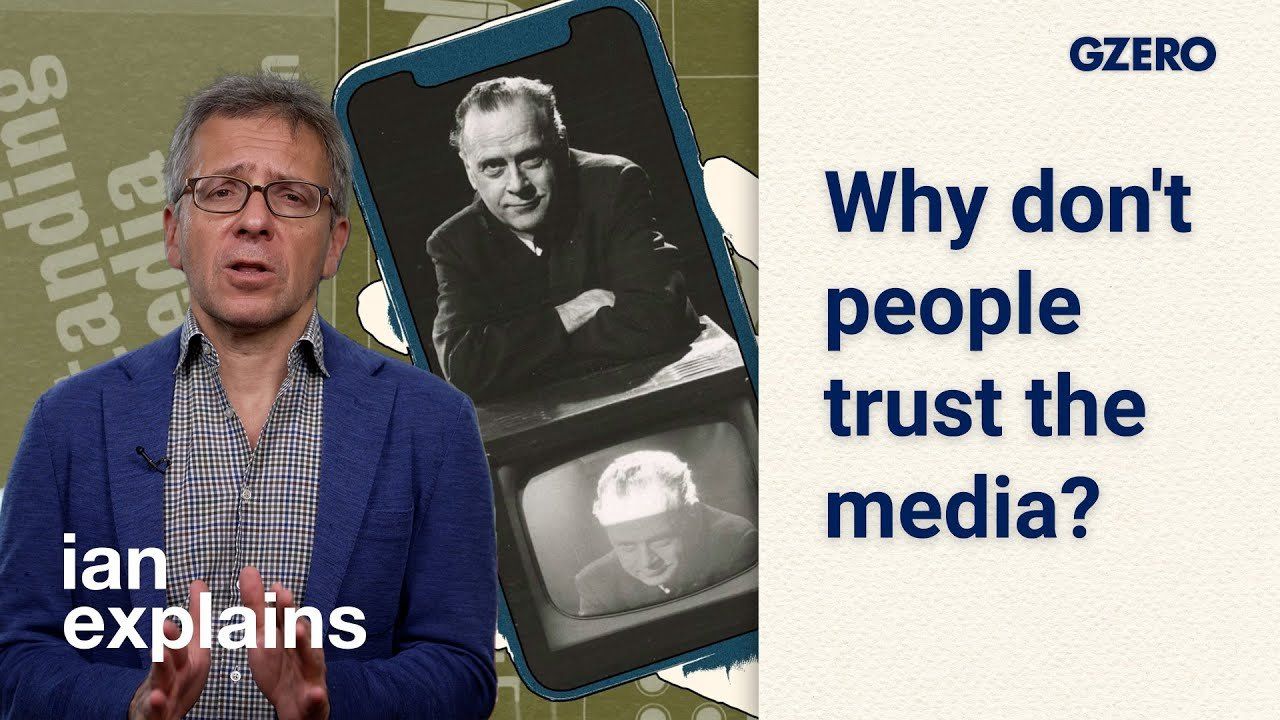
It’s getting harder and harder to tell fact from fiction. Trust in media is at an all-time low. At the same time, partisanship is skyrocketing, and generative AI is challenging the very idea of truth.
This week on Ian Explains, Ian Bremmer breaks down how the media landscape has changed since the early days of live TV and why the 2024 US presidential election will be a major test of our ability to detect and prevent misinformation from spreading online.
Cable news has come a long way from the 1960 presidential debate between John F. Kennedy and Richard Nixon, where Nixon famously showed up sweaty and pale, while John F. Kennedy showed up tanned and camera-ready. People who listened on the radio thought Nixon won the debate. But on TV, the advantage went to Kennedy and the polls quickly turned in his favor. It was the first-ever live TV debate and forever changed how media and politics interact with each other.
In the 60-plus years since, it’s only gotten harder to separate the message from the medium. A 24/7 cable cycle has turned the idea of news into mass entertainment. And hyper-partisan talk radio shows, thousands of political podcasts, and social media’s endless doom-scroll have created a perfect incubator for information––and disinformation––overload.
2024 will be the first US presidential election in the age of generative AI. The risk of spreading false or misleading information to voters is enormous. Despite calls from industry watchdogs and tech experts, US lawmakers have yet to pass any real guardrails for AI technology. And given the rapid pace of development, by the time the election rolls around next year, it will be even harder to tell an AI-generated video or image from the real thing.
Whether regulators and lawmakers can come up with an effective way to identify and combat AI misinformation is anyone’s guess, but one thing is clear: the stakes are incredibly high. And the future of US democracy may depend on it.
Watch Ian Explains for the full breakdown, and for more on the US, watch GZERO World with Ian Bremmer on US public television and at gzeromedia.com/gzeroworld.